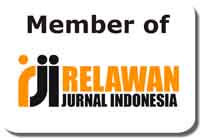What Do the EFL Pre-Service Teachers Say about Teacher Autonomy?
Abstract
Full Text:
PDFReferences
Azhariah, S., Lengkanawati, N. S., & Rodliyah, R. S. (2023). Teacher Roles in Fostering Learner Autonomy. SALEE: Study of Applied Linguistics and English Education, 4(2), 440–457. https://doi.org/10.35961/salee.v4i2.829
Barkhuizen, G. (2014). Revisiting narrative frames: An instrument for investigating language teaching and learning. System, 47, 12–27. https://doi.org/10.1016/j.system.2014.09.014
Benson, P. (2013). Teaching and researching autonomy, second edition. In Teaching and Researching Autonomy, Second Edition. Pearson. https://doi.org/10.4324/9781315833767
Breen, M.P., Mann, S. J. (1997). Shooting arrows at the sun; perspectives on a pedagogy for autonomy.
Brezicha, K., Bergmark, U., & Mitra, D. (2014). One size does not fit all: Differentiating leadership to support teachers in school reform. Educational Administration Quarterly, 51, 96–132. https://doi.org/10.1177/0013161X14521632
Broadbent, C. (n.d.). Thinking globally Preparing pre-service teachers for classrooms of the 21st century.
Cirocki, A., & Anam, S. (2021). ‘How much freedom do we have?’ The perceived autonomy of secondary school EFL teachers in Indonesia. Language Teaching Research, 136216882110074. https://doi.org/10.1177/13621688211007472
Dikilitaş, K., & Mumford, S. E. (2019). Teacher autonomy development through reading teacher research: agency, motivation and identity. Innovation in Language Learning and Teaching, 13(3), 253–266. https://doi.org/10.1080/17501229.2018.1442471
Farrell, T. S. C. (2012). Novice-Service language teacher development: Bridging the gap between preservice and in-service education and development. TESOL Quarterly, 46(3), 435–449. https://doi.org/10.1002/tesq.36
Grant, A., Hann, T., Godwin, R., Shackelford, D., & Ames, T. (2020). A Framework for graduated teacher autonomy: Linking teacher proficiency with autonomy. Educational Forum, 84(2), 100–113. https://doi.org/10.1080/00131725.2020.1700324
Gülşen, E., & Atay, D. (2022). The impact of dialogic reflections on teacher autonomy. Teacher Development, 26(5), 609–626. https://doi.org/10.1080/13664530.2022.2121747
Guo, L., & Wang, J. (2021). Relationships between teacher autonomy, collaboration, and critical thinking focused instruction: A cross-national study. International Journal of Educational Research, 106, 101730. https://doi.org/10.1016/j.ijer.2020.101730
Hendriwanto. (2021). A reflective teaching practicum as a platform for stimulating pre-service teachers’ professional development. Journal of Education for Teaching, 47(4), 624–626. https://doi.org/10.1080/02607476.2021.1941812
Hoxha, M., & Tafani, V. (2015). Promoting Learner Autonomy in Pre-service Teacher Education. Anglisticum Journal (IJLLIS), 4(9), 14–22.
Huang, J. (2005). Teacher autonomy in language learning: A review of the research. In Research studies in education 3(December), 203–218.
Iqbal, M., Putra, R., & Iswara, C. (2019). Pre- Service Teachers’ Perception. 03(02), 132–144.
Johnson, D., & Johnson, R. (2018). Cooperative Learning: The Foundation for Active Learning. https://doi.org/10.5772/intechopen.81086
Khotimah, K., Basthomi, Y., & Eliyanah, E. (2023). EFL Pre-service Teacher Development for Autonomy: Rethinking Future Autonomy Supportive Teacher (Vol. 2). Atlantis Press SARL. https://doi.org/10.2991/978-2-38476-054-1_27
Kiger, M. E., & Varpio, L. (2020). Thematic analysis of qualitative data: AMEE Guide No. 131. Medical Teacher, 42(8), 846–854. https://doi.org/10.1080/0142159X.2020.1755030
Kong, P. P. (2022). Understanding the teachers’ perspectives on the role of teacher autonomy in English classrooms in Chinese secondary schools. Educational Studies, 48(3), 397–407. https://doi.org/10.1080/03055698.2020.1763784
Mayer, A. P., Donaldson, M. L., LeChasseur, K., Welton, A. D., & Cobb, C. D. (2013). Negotiating Site-Based Management and Expanded Teacher Decision Making: A Case Study of Six Urban Schools. Educational Administration Quarterly, 49(5), 695–731. https://doi.org/10.1177/0013161X13492793
McLennan, B., McIlveen, P., & Perera, H. N. (2017). Pre-service teachers’ self-efficacy mediates the relationship between career adaptability and career optimism. Teaching and Teacher Education, 63, 176–185. https://doi.org/https://doi.org/10.1016/j.tate.2016.12.022
Nurfitriana, N., Drajati, N. A., & Sulistyawati, H. (2019). A content analysis of argumentative structure in pre-service teachers’ writing. Edulangue, 2(2), 172–186. https://doi.org/10.20414/edulangue.v2i2.1710
Orynbek, G., Hui, X., Tolkyn, K., Tadesse, E., & Khalid, S. (2021). The Influence of Leadership style on teachers’ job satisfaction in Public Universities in Kazakhstan. 6, 33–51. https://doi.org/10.1037/a0019237.
Perera, K. D. R. L. J. (2023). Applying Thematic Analysis to Analyse Qualitative Data: A Researcher’s Experience. 7, 1334–1340.
Prichard, C., & Moore, J. (2016). The balance of teacher autonomy and top-down coordination in ESOL programs. TESOL Quarterly, 50(1), 190–201. https://doi.org/10.1002/tesq.278
Rizqa, K., Drajati, N. A., & Putra, K. A. (2022). Pre-Service teachers’ perceptions on peer assessment process in learning academic writing: Artificial Intelligence (AI). Iconelt, 3, 50–58. https://doi.org/10.15642/iconelt.2022.3.50-58
Santoso, N. A., Drajati, N. A., & Saroso, T. (2019). Indonesian Pre-Service Teachers’ Intercultural Awareness in Short-Term International Experience: A Narrative Inquiry. English Education Journal, 7(2).
Sheridan, L. (2011). Exploring Pre- Service Teachers’ Perceptions of Teacher Qualities in Secondary Education: A Mixed-Method Study Lynn Sheridan Thesis submitted for the degree of Doctor of Philosophy University of Canberra. September.
Silva, D. (2022). Pre-service teachers’ understanding of culture in multicultural education: A qualitative content analysis. Teaching and Teacher Education, 110, 103580. https://doi.org/10.1016/j.tate.2021.103580
Smith, R. (2003). Developing teacher-learner autonomy: Constraints and opportunities in pre-service training. The Canarian Conference on Developing Autonomy in the FL Classroom.
Strong, L. E. G., & Yoshida, R. K. (2014). Teachers’ autonomy in today’s educational climate: current perceptions from an acceptable instrument. Educational Studies, 50(2), 123–145. https://doi.org/10.1080/00131946.2014.880922
Tekin, A. K. (2016). Autonomous motivation of Omani early childhood pre-service teachers for teaching. Early Child Development and Care, 186(7), 1096–1109. https://doi.org/10.1080/03004430.2015.1076401
Terry, I. Z., Drajati, N. A., & Handayani, E. I. P. (2021). A Pre-service teacher’s voice on the challenges of google docs-based collaborative writing. Edulangue, 4(2), 232–255. https://doi.org/10.20414/edulangue.v4i2.4152
Thoonen, E. E. J., Sleegers, P. J. C., Oort, F. J., Peetsma, T. T. D., & Geijsel, F. P. (2011). How to improve teaching practices: The role of teacher motivation, organizational factors, and leadership practices. Educational Administration Quarterly, 47(3), 496–536. https://doi.org/10.1177/0013161X11400185
Vieira, F. (2020). Pedagogy of experience in teacher education for learner and teacher autonomy. In Profile: Issues in Teachers’ Professional Development (Vol. 22, Issue 1, pp. 143–158). https://doi.org/10.15446/profile.v22n1.78079
Xiao, Y., & Yang, M. (2019). Formative assessment and self-regulated learning: How formative assessment supports students’ self-regulation in English language learning. System, 81, 39–49. https://doi.org/10.1016/j.system.2019.01.004
Yin, Robert. K. (2016). Qualitative Research from Start to Finish. The Guildord Press.
DOI: http://dx.doi.org/10.31332/lkw.v0i0.5767
Copyright (c) 2023 Isna Humaera, Muh Afrizal, Anita Rezki

This work is licensed under a Creative Commons Attribution-ShareAlike 4.0 International License.
Publisher:
UPT Pengembangan Bahasa, IAIN Kendari
Jln. Sultan Qaimuddin No. 17 Baruga, Kota Kendari, Sulawesi Tenggara
Website: upb.iainkendari.ac.id
Email: [email protected]



















